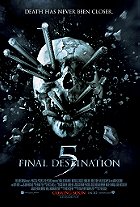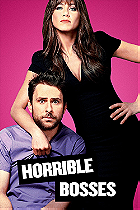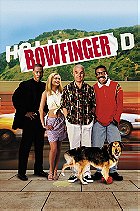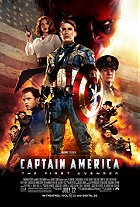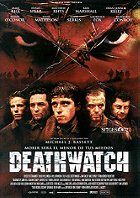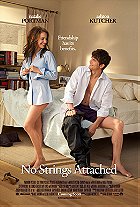Over the course of a few years, the Pirates of the Caribbean series degenerated from a hot item to a boring, convoluted mess. While 2007's third instalment, At World's End, was assumed to be the end, Disney made a killing at the box office, meaning that a forth instalment was an inevitability. Considering the iffy quality of the last two movies in the series, 2011's Pirates of the Caribbean: On Stranger Tides should have given the ailing franchise a new lease on life. And for months, those behind the movie tried to have us believe that it would be more stripped-down than the talky, soulless, long-winded, empty-headed excess of Dead Man's Chest and At World's End... But alas, their words are simply untrue. On Stranger Tides begins with mild promise, but its leaden pace is detrimental, and the decision to foreground Johnny Depp's Captain Jack Sparrow was very ill-advised indeed.

After a few shenanigans in London, the inimitable Captain Jack Sparrow (Depp) is kidnapped and forced to participate in a hunt for the Fountain of Youth. The adventure was spearheaded by old flame Angelica (Cruz) and her father; the infamous, ruthless pirate Blackbeard (McShane). Meanwhile, King George II (Griffiths) also assembles a party to head out in search of the Fountain of Youth, as news reaches his ears that the Spanish have begun their own expedition. A lot of convoluted twists and turns stem from here, which would be exhausting to list.
Series veterans Ted Elliot and Terry Rossio were called back to pen On Stranger Tides, and they clearly did not learn from past blunders. The film is shorter than its immediate predecessors by a considerable margin, but the script remains just as bloated and needlessly drawn out. This is not a lean, exciting adventure with good ol' Captain Jack, but instead a laboured affair filled to the brim with superfluous plot detours and subplots, necessitating plenty of time in which momentum flags, narrative progression halts, and the characters sit around delivering stale dialogue. Plus, with Will and Elizabeth having been extracted, the writers crudely shoehorned in an undernourished, contrived romance between a captive mermaid (Bergès-Frisbey) and a young missionary (Claflin) that fails to resonate. A romantic angle is perfectly fine, but not if it's as utterly lifeless as this. Added to this, directly because of the inclusion of far too many characters, you will not care about who wins when everything comes to a head in the climax - you'll only care about whether or not Jack survives. And to make matters worse, Blackbeard possesses unexplained supernatural powers which he seems to forget about unless the plot calls for it.

Why Rob Marshall was chosen to direct such a large-scale blockbuster is a mystery for the ages. His only prior filmmaking credits include Chicago, Memoirs of a Geisha and Nine, none of which demonstrated that the director could be capable of handling a Pirates of the Caribbean movie. Lo and behold, his direction is frequently incompetent - absent is a sense of peril and excitement, and there's no swashbuckling sparkle which should be present in a production like this. For proof of his ineptitude, look no further than a chase sequence through London which occurs in the first third - not only is it too long and narratively unmotivated, but sluggish and unengaging as well. It's as if Marshall just filmed a rough rehearsal being performed at one-third speed, as nobody seems to be genuinely in the moment. And just prior to this, Jack makes a wholly improbable escape from the centre of a palace. None of the soldiers try to shoot the trouble maker as he makes his very ostentatious escape, nor do they seem to actually be trying to stop him. The whole sequence is flat.
The film's budget was rumoured to have ballooned up to $250 million, so production values are expectedly slick and handsome, as is Dariusz Wolski's photography of the gorgeous Hawaiian locales. However, the action scenes are a mixed bag. Some action beats are handled well, while other scenes suffer from poor lighting, shaky-cam and quick editing. The same type of principal applies to expository scenes as well - some are enjoyable enough (there are two or three good Jack Sparrow moments), but others are boring and flat. It feels like On Stranger Tides was directed by two entirely different people, one of whom wanted to craft a quality product while the other simply wanted to get another Pirates of the Caribbean movie in theatres as quickly as possible. Speaking of the sense of greed which plagues the project, Disney chose to deliver the film in 3-D. While the movie was shot with 3-D camera, costs were cut by rendering the digital effects in 2-D before converting them to 3-D. By all accounts, the 3-D is dreadful and eye-gauging - lighting is dimmed to the point that you cannot tell what's happening, and the sword fights induce headaches.

Making Captain Jack Sparrow the protagonist of his own movie was a good idea in theory due to his popularity, but disastrous in execution. Jack worked so well in the first Pirates of the Caribbean film because he was a quirky, scene-stealing supporting character who merely bounced around the sidelines of the movie while other characters took care of narrative-related duties and underwent character arcs. With Jack having to shoulder these burdening responsibilities in On Stranger Tides, the shtick lacks its former spark. Johnny Depp's paycheque for On Stranger Tides was a whopping $55.5 million, meaning he received about a quarter of the budget! Perhaps this role is the best choice for Depp financially, but not creatively. The shtick has gotten old, and Depp had to play Sparrow far too straight, meaning his little bursts of quirkiness are much too few and far between. Geoffrey Rush also returned, but his performance as Barbossa is just as disheartening. Instead of a menacing pirate, he's an agent for King George and thus a faint shadow of his former self. Fellow returnees Kevin McNally and Keith Richards are merely okay as Gibbs and Jack's father (respectively), but their presence seems based on nostalgia rather than necessity. Ian McShane also tried his hardest as Blackbeard, but doesn't make much of an impression. Then there's Sam Claflin and Astrid Bergès-Frisbey, who are frankly D.O.A. - their performances are vanilla, and they share little chemistry. At least Stephen Graham shows up to enliven things from time to time with a fairly exuberant performance.
Pirates of the Caribbean: On Stranger Tides features zombie pirates and killer mermaids, so it's bewildering that the film is so frequently boring. Everything about On Stranger Tides was wrong from the get-go: wrong writers (why not bring in fresh blood?), wrong director (why hire a dance choreographer?), wrong angle (Captain Jack Sparrow should not have been the protagonist), and wrong mindset (it was green-lit for the money, let's face it). There's no reason to see it unless you're a completist or a diehard fan of the franchise.
5.1/10
 Login
Login
 Home
Home 183 Lists
183 Lists 1670 Reviews
1670 Reviews Collections
Collections
 0 comments,
0 comments, 